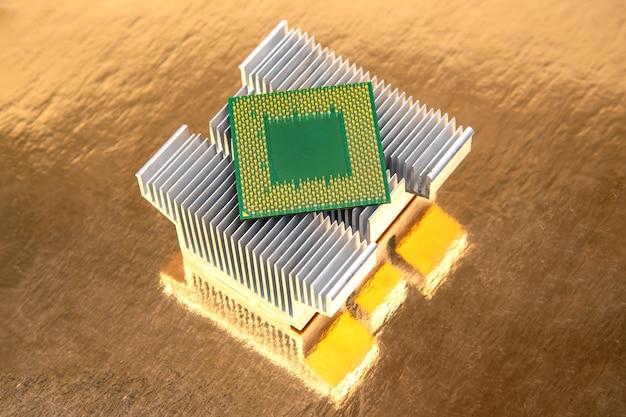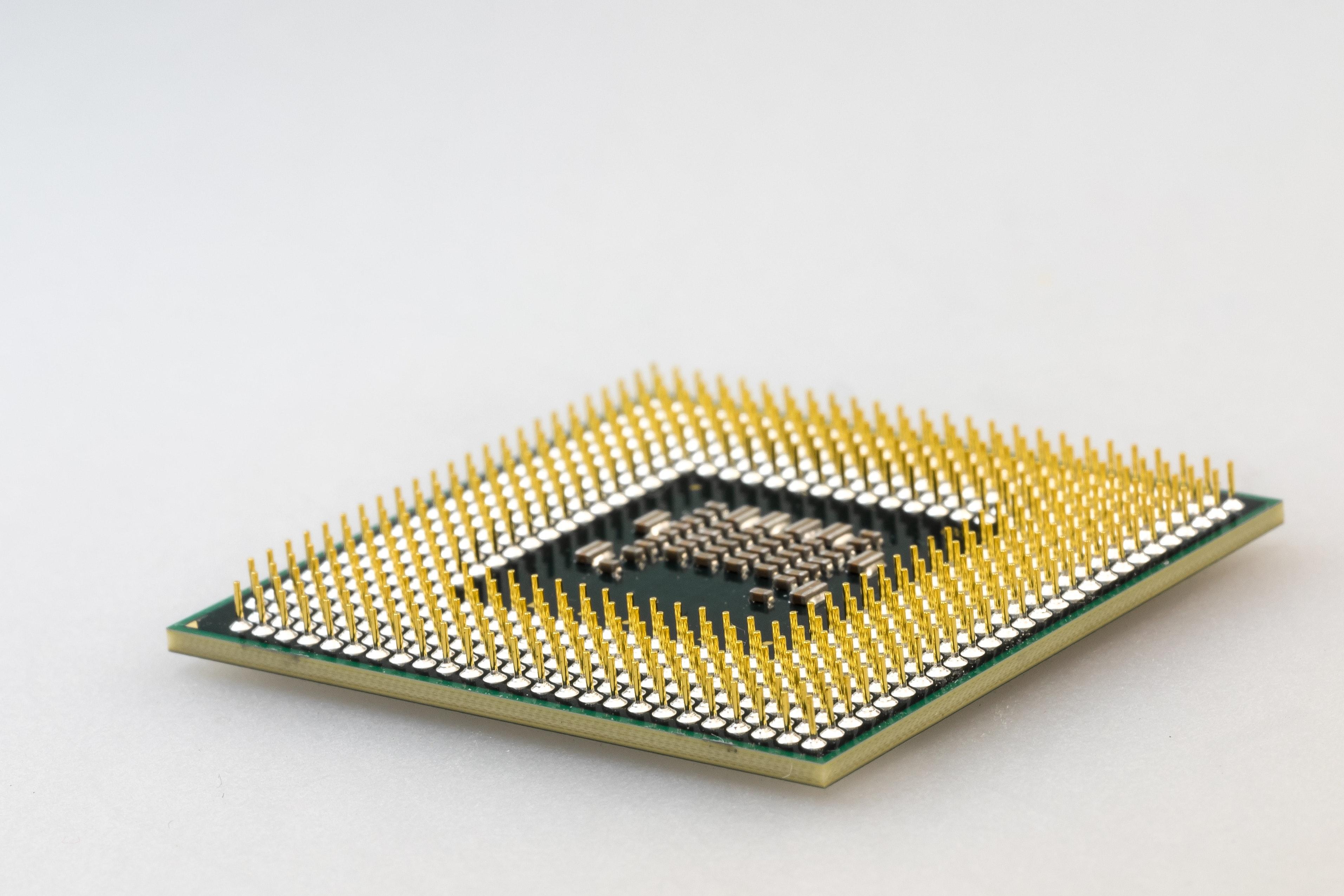Computers and technology have come a long way, and we now have processors with varying capabilities and specifications. One commonly discussed aspect is whether all i7 processors are 64-bit. In this blog post, we will explore this question and shed light on the fascinating world of processor architecture.
With the advent of 64-bit processors, there arose questions about the absence of a 128-bit option. We’ll delve into this intriguing topic and see why there isn’t a 128-bit processor available yet. Additionally, we will clarify the concept of a 64-bit Intel processor and understand how it differs from its 32-bit counterpart.
Curious about switching from a 32-bit to a 64-bit system? We’ll provide a guide on how to make this transition seamlessly. Furthermore, we’ll touch upon the largest number a 64-bit system can handle and compare the benefits of 64-bit processors versus 128-bit processors, if such a comparison can even be made.
Join us on this captivating journey into the world of i7 processors and uncover the truth about their 64-bit capabilities!

Are all i7 Processors 64 bit
Exploring the 64-bit World of i7 Processors
When it comes to computer processors, the i7 series is often regarded as a powerhouse, capable of tackling demanding tasks with ease. However, if you’re delving into the world of i7 processors, you may have wondered whether all i7 processors are 64-bit. Let’s dive into this question and unravel the mysteries of 64-bit processing!
32-bit vs. 64-bit: The Battle Begins
Before we embark on our journey to discover the truth about i7 processors, it’s essential to understand the distinction between 32-bit and 64-bit architectures. In the past, the 32-bit realm reigned supreme, providing sufficient computing power for most users. However, as technology advanced and software became more sophisticated, the industry shifted towards the more capable 64-bit architecture.
Why 64-bit is Great
64-bit processors offer several advantages over their 32-bit counterparts. They can access more memory, allowing for smoother multitasking and seamless operation of resource-hungry applications. Additionally, 64-bit processors handle large files and complex datasets with ease, making them ideal for professionals like designers, engineers, and gamers who crave top-notch performance.
The Good News for i7 Lovers
Now, let’s address the burning question: are all i7 processors 64-bit? The answer is a resounding yes! Since the inception of the i7 series, Intel has explicitly designed these processors to utilize the power of 64-bit architecture. So, rest assured that when you opt for an i7 processor, you’re venturing into the realm of ultimate computing prowess.
Future-Proofing Your Computer
Investing in a 64-bit i7 processor not only guarantees immediate benefits but also future-proofs your system. As technology advances and software becomes even more demanding, you can rely on your 64-bit i7 processor to handle the challenges that lie ahead. It’s like fortifying your computer’s foundations, ensuring it remains relevant and powerful for years to come.
Let the Performance Roar!
Armed with a 64-bit i7 processor, you can unlock the true potential of your computer. From blazing-fast rendering in graphic-intensive applications to seamless multitasking between numerous software, these processors are built to deliver exceptional performance in every aspect of your digital life. So, fasten your seatbelt and brace yourself for a computing experience that will take your breath away!
In conclusion, all i7 processors are indeed 64-bit. By opting for an i7 processor, you’re embracing the pinnacle of computing power and future-proofing your system. With the ability to handle mammoth tasks and deliver unparalleled performance, the 64-bit i7 processors are a dream come true for power users and enthusiasts alike. So, go ahead and embrace the 64-bit revolution with an i7 processor – your computer will thank you for it!
Remember, next time you find yourself pondering the question “Are all i7 processors 64 bit?” you can confidently answer with a resounding “Yes!” Now, go forth and conquer the digital world with your mighty 64-bit i7 processor!

FAQ: Are all i7 Processors 64 bit
Welcome to our FAQ section on i7 processors and their 64-bit architecture. We’ve gathered some of the most commonly asked questions and answered them for you. So, let’s dive right in!
Why isn’t there a 128-bit processor
Ah, the mythical 128-bit processor! While it sounds fantastic, no existing consumer-grade processor has reached such heights yet. You see, 64-bit processors are already quite powerful, capable of handling massive amounts of data. A jump to 128-bit would be like trying to fit a T-Rex into your grandma’s teacup. It’s just not practical… or necessary at the moment. But who knows what the future holds? Maybe one day we’ll be crunching numbers at warp speed with our 128-bit buddies.
What exactly is a 64-bit Intel processor
Now, we’re getting down to the nitty-gritty. A 64-bit Intel processor refers to the architecture of the processor’s instruction set. In simpler terms, it’s like having a superhighway for data, allowing your processor to handle larger chunks of information at a time. This means improved performance, better multitasking, and a more efficient use of memory. So, if you’re the type of person who likes to have their cake and eat it too, a 64-bit processor is definitely the way to go!
Can I get my hands on a 128-bit processor
Hold your horses, cowboy! As of now, 128-bit processors are not available for your average computer enthusiast. These super-powered processors are usually found in specialized systems used for scientific research, weather prediction, or alien communication (okay, maybe not the last one). For the average Joe or Jane, a 64-bit processor is more than sufficient to handle all your daily computing needs. So, don’t fret too much about missing out on that 128-bit goodness just yet.
How can I upgrade from a 32-bit to a 64-bit processor
Ah, the age-old question of upgrading from 32-bit to 64-bit. Well, I hate to break it to you, but it’s not as simple as slapping a new processor into your computer and calling it a day. Upgrading from 32-bit to 64-bit involves more than just swapping out a few hardware components. You’ll need to consider compatibility with your operating system, software, and drivers. So, unless you’re a computer wizard with a PhD in geekery, it’s probably best to leave this upgrade to the professionals.
What’s the largest number a 64-bit processor can handle
Oh boy, this question really gets the math nerds excited! A 64-bit processor can handle mind-bogglingly large numbers. Are you ready for it? Brace yourself… it’s a number with a whopping 19 digits! That’s right, you can count all the way up to 9,223,372,036,854,775,807 with a 64-bit processor. Pretty impressive, huh? So, whether you’re calculating the national debt or counting your vast collection of cat pictures, a 64-bit processor will have no trouble crunching those enormous numbers.
Are all i7 Processors 64 bit
Yesiree! Every single i7 processor that you can get your hands on is indeed 64-bit. The mighty i7 lineup from Intel is built for speed, power, and efficiency. With their powerful cores and hyperthreading technology, i7 processors can handle just about anything you throw at them. So, whether you’re a gamer, a video editor, or a professional procrastinator, rest assured that your i7 processor will have no trouble chewing through those 64-bit applications.
Is 64-bit better than 128-bit
Ah, the eternal battle between bits! While 128-bit processors might sound like the bee’s knees, they aren’t necessarily “better” than their 64-bit siblings. Remember, it’s not always about the number of bits you have, but how you use them (yes, I’m talking about processors here, not dating advice). Currently, most software and operating systems are optimized for 64-bit architecture, making it the go-to choice for the average user. So, until the day when 128-bit becomes the norm, let’s all just enjoy our mighty 64-bit processors and leave the 128-bit dreams for the future.
And there you have it, folks! Our comprehensive FAQ section on i7 processors and their 64-bit goodness. We hope we’ve answered all your burning questions and maybe even brought a smile to your face along the way. If you have any more queries, feel free to drop them in the comments below. Happy computing in the fabulous world of 64-bit!
